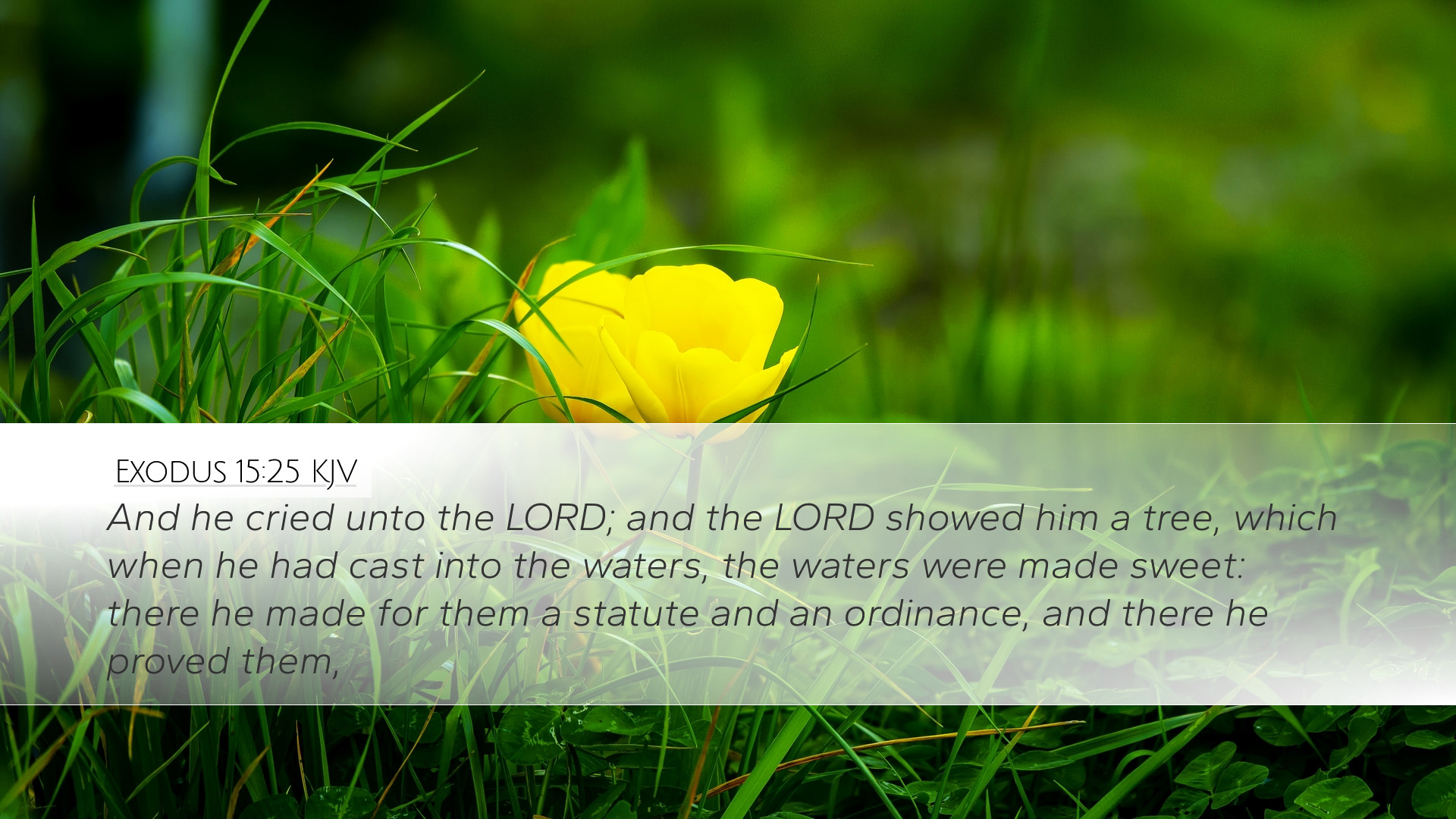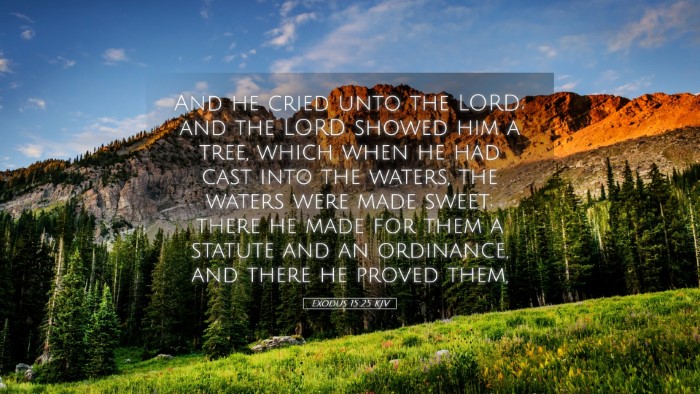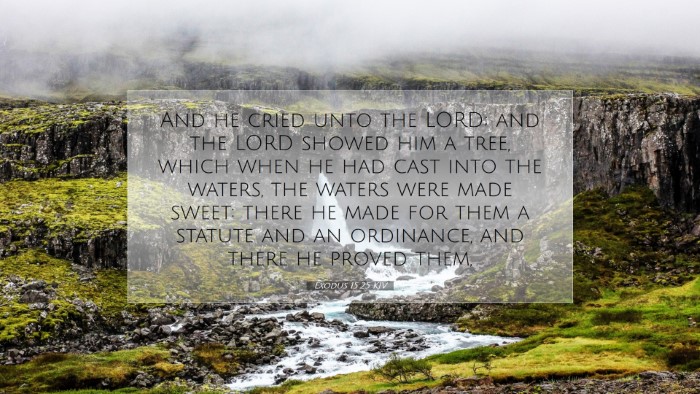Commentary on Exodus 15:25
Verse Context: Exodus 15:25 is situated in the aftermath of the Israelites' miraculous crossing of the Red Sea. Having just experienced divine deliverance from the Egyptians, they are elated yet face immediate hardship. The verse reads: "And he cried unto the LORD; and the LORD showed him a tree, which when he had cast into the waters, the waters were made sweet: there he made for them a statute and an ordinance, and there he proved them."
General Overview
This passage occurs shortly after the Israelites have composed the Song of Moses, celebrating their escape from bondage. Their joy, however, is short-lived as they encounter bitter waters at Marah. Here, the narrative reveals God's provision in the face of trial, emphasizing themes of testing, divine intervention, and covenant relationship.
Interpretation and Analysis
1. The Crisis at Marah:
Upon arriving at Marah, the people are disheartened to find the water undrinkable. This moment serves as a critical test of their faith. Matthew Henry notes that this situation is emblematic of the trials faced by believers. Just moments after a significant victory, they encounter an obstacle that challenges their trust in God’s provision.
2. The Role of Moses:
Moses responds not with immediate despair but by crying out to the Lord, exemplifying reliance on divine assistance. Albert Barnes highlights that Moses' action is instructive, showcasing a leader that looks towards God in moments of distress. This response signals to the Israelites the importance of faith in troubling times.
3. Divine Provision:
God’s response is immediate; He shows Moses a tree, which when cast into the waters, transforms them into sweet water. Adam Clarke points out that the tree is a physical representation of God’s miraculous power to transform and redeem. This act not only alleviates the immediate discomfort but also acts as a prefiguration of Christ's redemptive work, where bitterness (sin) is transformed into something sweet (salvation).
Theological Implications
1. Testing and Assurance:
This narrative illustrates God's method of testing His people. The bitterness of Marah exemplifies the trials believers face in their journey. Henry emphasizes that these tests are not for destruction but for the proving of faith and obedience. The Lord's intention is to lead His people towards trust and reliance on Him.
2. The Nature of God:
The Lord's provision in the crisis reflects His character as a compassionate and covenant-keeping God. Clarke notes that God introduces statutes and ordinances at Marah, indicating that His relationship with Israel is not merely about physical sustenance but about spiritual engagement. The guidelines given thereafter are meant to cultivate a deep relational dynamic between God and His people.
Practical Applications
1. Facing Trials:
The story encourages believers to maintain faith during trials. Like the Israelites, who tasted bitterness before they experienced God's provision, Christians may sometimes find themselves in seemingly hopeless situations. The call here is to look for God's guidance and intervention, trusting in His character.
2. The Importance of Leadership:
Moses' example of turning to prayer during crises teaches the importance of spiritual leadership. Leaders in faith communities are encouraged to model dependence on God, seeking divine wisdom in adversity. Barnes stresses that leaders should guide their congregations towards faith, especially in times of uncertainty.
Conclusion
Exodus 15:25 underscores central theological tenets about divine provision, the necessity of faith in trials, and the nature of God's covenant with His people. As we reflect on the implications of this passage, may we, like Moses, turn to the Lord in our moments of need, trusting in His unfailing goodness and mercy.
References from Commentators
- Matthew Henry: Commentary on the Whole Bible.
- Albert Barnes: Barnes' Notes on the Bible.
- Adam Clarke: Clarke's Commentary on the Bible.


